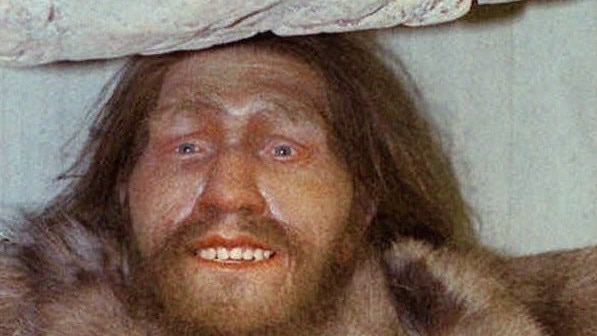Fossil of child with Down syndrome reveals Neanderthal altruism
Scientists have discovered the earliest known cause of Down syndrome, and believe she must have been cared for by several others.

Scientists have discovered the earliest known case of Down syndrome, in an ancient fossil of a Neanderthal child whose clan must have cared for her.
The child would have been at least six years old when she died in what is now Spain, more than 140,000 years ago.
She appears to have had severe hearing loss and poor balance and probably struggled to breastfeed as an infant.
To live for as long as she did, researchers believe she must have been cared for by several others. They say the findings seem to give a new glimpse of how our now-extinct sister species, the Neanderthals, supported one another.
“They are helping a child who cannot pay them back: this is altruism,” said Professor Mercedes Conde-Valverde of the University of Alcala, who led the study.
Down syndrome, which occurs in about one in 700 babies today, is caused by an extra copy of a chromosome. This gives rise to a host of changes, including possible heart defects and learning disabilities.
Researchers have identified several prehistoric cases in our species, Homo sapiens, dating to as early as 3600BC. However, none of these survived beyond about 16 months.
There is a modern case of a wild chimpanzee with Down syndrome, which also affects great apes, that survived to 23 months thanks to care by the mother, who was assisted by her eldest daughter. When the daughter stopped helping the mother, the mother was unable to provide the necessary care and the young chimp died.
“These data show the short life expectancy of children with Down syndrome in nature and in prehistoric times,” Conde-Valverde and her colleagues write in the journal Science Advances.
“It is therefore notable that the [newly identified child] lived to at least six years of age, which far exceeds the usual life expectancy of children with Down syndrome in prehistoric populations.”
As recently as the 1920s, life expectancy for a child with Down syndrome was only about nine years, the researchers added.
One theory is that caregiving emerged as a self-interested pact between individuals who could repay acts of kindness. Another is that caregiving was born out of altruism, with no expectation of reciprocity.
The authors of the study argue that the Neanderthal child’s mother would have struggled to provide care alone while keeping up with the daily challenges of foraging in the paleolithic period. This, they conclude, suggests that “caregiving and collaborative parenting occurred … that must have been very similar to that of our species”.
Pieces of the child’s skeleton were excavated in 1989 from the Cova Negra archaeological site near Valencia. A new analysis has shown traits associated with Neanderthals.
It also revealed ear abnormalities that would have caused hearing loss and disabling vertigo. “The only syndrome that is compatible with the entire set of malformations present is Down syndrome,” the researchers wrote.
Professor Chris Stringer of the Natural History Museum, who was not involved with the study, said the argument was convincing. “Although the severity of Down syndrome can vary greatly in individuals affected today, the extent of pathological alteration suggests that this child was seriously disabled by it, and would have required considerable social support from others,” he said.
The findings added to existing evidence that Neanderthals were “capable of caring deeply and lastingly for their own”, he added.



To join the conversation, please log in. Don't have an account? Register
Join the conversation, you are commenting as Logout